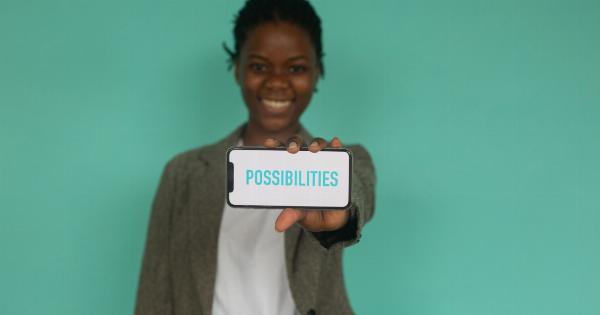Our disposition refers to our overall state of mind, temperament, and outlook on life. It encompasses our thoughts, emotions, and behaviors, all of which shape our daily experiences and interactions.
Given the significant impact our disposition has on our well-being and overall quality of life, it is natural to wonder if it is possible to alter or change it.
The Nature of Disposition
Before diving into the feasibility of altering our disposition, it is important to understand the nature of disposition itself. Our disposition is not static; it can fluctuate and evolve over time.
Factors such as genetics, upbringing, life experiences, and even our personal choices play a part in shaping our disposition.
The Power of Attitude
Our attitude plays a crucial role in shaping our disposition. Attitude refers to the way we choose to perceive and respond to situations, individuals, and events in our lives.
While we may not always have control over external factors, we can choose how we interpret and react to them. Cultivating a positive attitude can have a profound impact on our disposition and overall well-being.
The Role of Self-Awareness
Self-awareness is a key ingredient in altering our disposition. Being aware of our thoughts, emotions, and behaviors allows us to identify patterns and triggers that may contribute to a negative or undesirable disposition.
Through self-reflection and introspection, we can gain a deeper understanding of ourselves and take steps towards making positive changes.
Embracing Mindfulness
Mindfulness, the practice of being fully present in the moment without judgment, can also aid in altering our disposition.
By focusing our attention on the present and letting go of negative thoughts or worries about the future or past, we can cultivate a sense of calm and contentment. Regular mindfulness practices, such as meditation or deep breathing exercises, can help to rewire our brains and promote a more positive disposition.
The Impact of Surroundings
Our surroundings, including our physical environment and the people we interact with on a regular basis, can significantly influence our disposition.
Negative or toxic environments and relationships can drag us down and contribute to a negative disposition. On the other hand, surrounding ourselves with supportive and positive individuals, engaging in activities that bring us joy, and creating a nurturing physical environment can all contribute to a more positive disposition.
The Role of Habits
Habits, both good and bad, have a profound influence on our disposition. By consciously creating and practicing positive habits, we can shape our disposition over time.
For example, engaging in regular exercise, prioritizing self-care, practicing gratitude, and nurturing meaningful relationships are all habits that can contribute to a more positive and fulfilling disposition.
Seeking Professional Help
In some cases, altering our disposition may require professional guidance.
Mental health professionals, such as therapists or counselors, can provide valuable support and strategies to help reframe negative thinking patterns, manage emotions, and develop coping mechanisms. Seeking professional help is not a sign of weakness but a proactive step towards altering our disposition for the better.
Challenges and Roadblocks
It is important to acknowledge that altering our disposition is not always an easy or straightforward process. We may encounter challenges, setbacks, and moments of self-doubt along the way.
Additionally, certain mental health conditions or underlying factors may require specialized treatment or support. However, with determination, patience, and a willingness to put in the effort, altering our disposition is feasible.
The Benefits of Altering Your Disposition
Altering our disposition can have numerous benefits, both for our own well-being and for our interactions with others.
A more positive disposition can lead to increased happiness, improved relationships, enhanced resilience, better physical health, and a greater sense of fulfillment in life. It also allows us to approach challenges and setbacks with a more optimistic and proactive mindset, increasing our chances of success and personal growth.
Conclusion
While altering our disposition may not happen overnight and may require conscious effort and self-reflection, it is indeed feasible.
By cultivating a positive attitude, practicing self-awareness, embracing mindfulness, nurturing positive surroundings and habits, seeking professional help when needed, and persevering through challenges, we can effectively alter our disposition and enjoy the countless benefits it brings. Remember, our disposition is not set in stone, and with determination and a growth mindset, we have the power to shape it according to our desires, leading to a more fulfilling and joyful life.





























